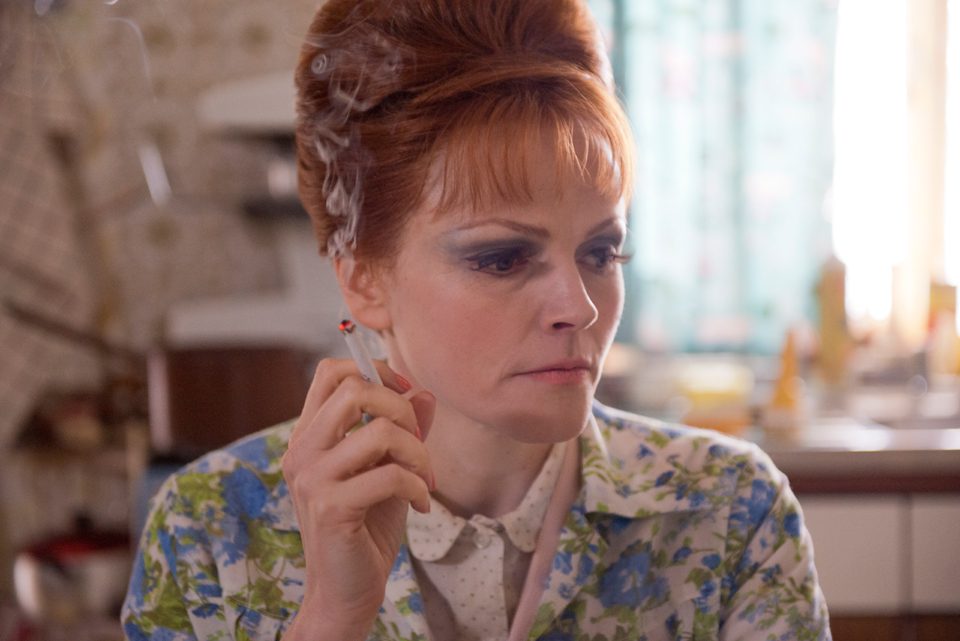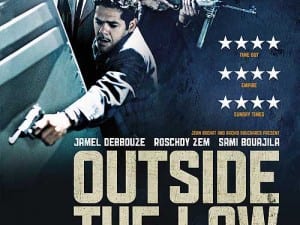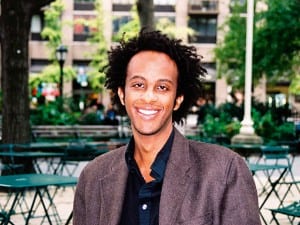Carol Morley’s fourth feature film, The Falling, explores the struggles and pressures of adolescence through an unusual fainting epidemic in an English girl’s school in the 1960s.
The year is 1969. Man has just taken his first lunar step, while back on earth a mass psychogenic illness is sweeping through a British single-sex school, gripping its pupils in unconscious rapture. The Falling is British director Carol Morley’s fourth feature film and focuses on friendship, desire and the power of the collective unconscious. The mysterious story unfolds when best friends Abbie (Florence Pugh) and Lydia (Maisie Williams) find the bond they have shared for year shaken by their emerging sexual identities.
Abbie, the epitome of the 1960s dream girl, is the first to show symptoms of a mysterious fainting disorder. “Abbie is this kind of classic notion of what beauty meant at that time, it’s what the girls have seen in all the magazines”, elaborates Morley. “I thought back to my own school days and those 1960s annuals full of blonde, blue-eyed, long-haired girls! So I was really looking to create a character that would be quite cool, who everyone would want be and look like, who would break the school rules, but not too much … a bit rebellious, quite charismatic and – within the group she’s in – at the forefront of being interested in sex – or, at least, showing it more than anyone else.”
As part of her research into the phenomenon of mass psychogenic illness, Morley spoke to women who had experienced outbursts in their schools and found a common feature was “people wanting to faint and a sense that it was some kind of a displacement of sexual desire, or wanting to feel or let go.” Her short film The Madness of The Dance (2006) observed the long history of these mass behavioural outbreaks: “In medieval times, there were dancing manias and pilgrim manias, so even when you look back into the distant past it seems mass hysteria reflects the anxieties of the time.”
Morley was fascinated by the combination of time-specific cultural anxieties and adolescent transitions. “I read a lot of medical journals about mass psychogenic illness. I found that outbreaks in the 1960s often seemed to be more about sexual anxieties, and the ones in the 1950s were about atomic fears. That’s why I was so interested in setting The Falling in the 1960s; I thought it would be great to observe not only a female institution and female friendship but also adolescent fears and desires concerning sexuality.”
The sense of a powerful group unconscious was deepened by Morley’s exploration of the associated psychology and symbolism: “I was really interested in the idea of mass hysteria because of the collectivity of it. I tried to read the kinds of things the characters might have read at the time, and also studied the philosophies of Ouspensky and Carl Jung. As a filmmaker I found Jung particularly interesting because he writes in depth about the unconscious and, specifically, the collective unconscious. I found it philosophically fascinating that we could all connect and that something could rise to the surface which we had repressed as a society.”
This intangible force plays an important part in the form of the film and is crucial to the experience of the characters as they navigate unfamiliar territory. Morley sees the pre-conscious experiences of the adolescent characters as reflective of audience responses to experimental film: “It’s not always the conscious parts of the mind that you’re connecting to, it’s also the unconscious. I found that fascinating, and especially matters of teenage identity – because things are happening for the first time; you’re not terribly cognisant of why, or what it all means, if it means anything.”
As well as having studied fine art, film and video, Morley came from a filmmaking background that wasn’t restricted by conventional structures. “The urge is to make something that is of itself.” Her intuitive and instinctive approach to filmmaking echoes in the haunting soundtrack, composed by Tracey Thorn of the Marine Girls and Everything But The Girl. The central cast had improvised songs in their “Alternative School Orchestra” – including one they perform in the film – so Morley played this to Thorn, gave her their instruments and complete creative freedom: “It was really important to me that she didn’t read the script, she didn’t see the whole film, but that she got a feeling for the sound and developed her own ideas from there.”
The aesthetic inspiration for The Falling sprang from a combination of Morley’s early immersion in art and experimental films, and a revisiting of classics that had left deep impressions. “Because I went to art school, filmmakers such as Stan Brakhage with his little frame cuts are definitely imbued. They became part of what I do and want to explore. In terms of my general approach, I’m definitely inspired by experimental pieces and also the work of, say, Chantal Akerman, Agnès Godard and Shirley Clarke. But I think the inspiration that I searched for The Falling were films like Picnic at Hanging Rock, Swedish Love Story, Heavenly Creatures and the TV series of The Prime of Miss Jean Brodie with Geraldine McEwan. I looked at these films set in single- sex institutions because I loved them at the time. They gave me the direction that I wanted and helped me to understand what I would do when making a film set in a school. And the power and the intrigue of the young, adolescent woman at this particular change in her life – I wanted to take that further.”
The world within The Falling casts a claustrophobic spell over its characters. The girls test the boundaries of their experiences, sealed in the self-governed world of teenage logic. While the strict, repressive institution tries to keep them under control, Lydia’s mother Eileen, a Cindy Sherman-esque figure, is paralysed with agoraphobic fear: “I love the idea that woman is trapped in her domestic space and man has landed on the moon.” Brilliantly embodied by Maxine Peake, Eileen is the product of many influences: Morley’s passion for Douglas Sirk melodramas; her hairdresser aunt; and an essence of many women Morley has known. However, Eileen is also a woman of a bygone era, incapable or unwilling to adapt to the times. “If you were somebody of Eileen’s age in 1969, nearly 40 or around there, you would have been much more set in the 1950s, hence she’s still got this old-fashioned beehive.”
The 1960s brought figures such as the English occultist Aleister Crowley into pop culture. The roots of these secret beliefs and rituals run deep in British history and weave through The Falling like the ley-lines of which Lydia’s brother Kenneth (Joe Cole) speaks. Kenneth’s belief in an alternative power echoes the mystery surrounding the fainting epidemic; although there is a wealth of medical research on mass psychogenic illnesses, and a scientific understanding behind how they spread, there is still very little knowledge about the cause. “It’s scientific and psychological,” shares Morley, “but I also believe that there are other forces at play.”
It is this suggestion of unknown magical forces that imbues The Falling with a subversive paganist threat that resonates deep in Britain’s veins, and in films such as The Wicker Man and Witchfinder General. “I think the film is probably tapping into a British folk horror, or something similar,” reflects Morley, “Definitely the kind of films that Nicolas Roeg made. For instance, Don’t Look Now portrays that sense of something threatening just under the surface and breaking through.” Both Robin Hardy’s The Wicker Man and Michael Reeves’ Witchfinder General depict an ingrained fear of female sexuality and a belief in its wicked and controlling influence over men.
The collective unconscious of these teenage girls in The Falling and their internal conflict, reveal a fear of their own slowly emerging identities and desires yet at the same time, a great collective power: “I think the witch thing is really interesting, too, because when you look at the British or American or German witch trials, you think ‘My God! Women were demonised for being simply carnal or old!’ If you were old, they thought you were casting spells on people; if you were young, you were threatening because of carnal nature. So, when in the film, the guy calls women witches, I think that is because a large group of women can be threatening to people – and have power. I love that.” The Falling opens nationwide in cinemas on 24 April. For further details about the film, visit the website www.campfilms.co.uk.
Sophie Brown





